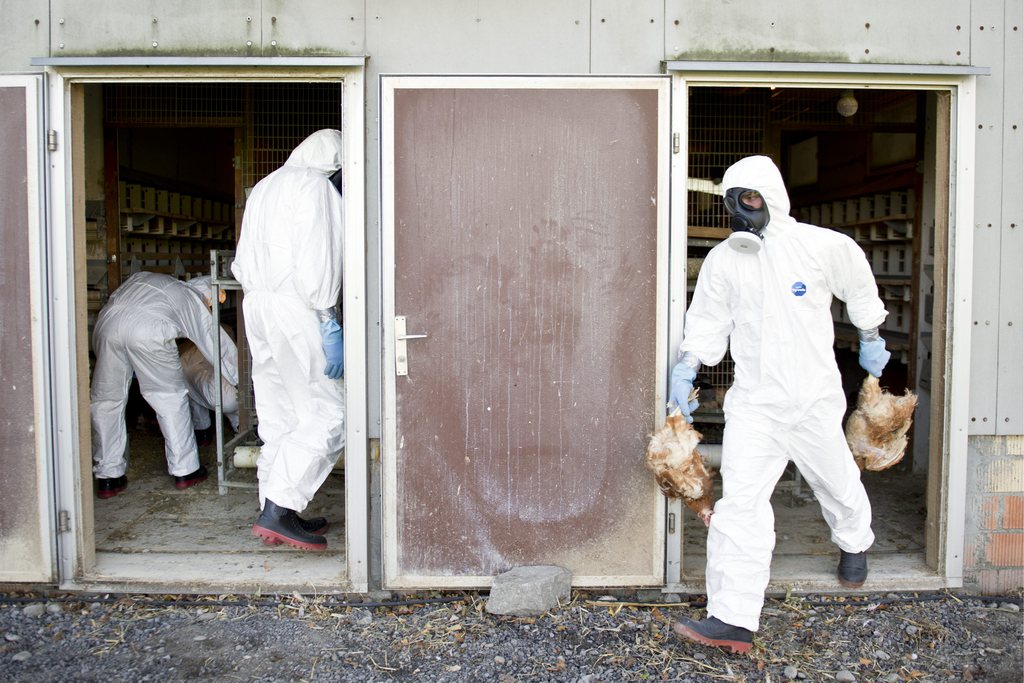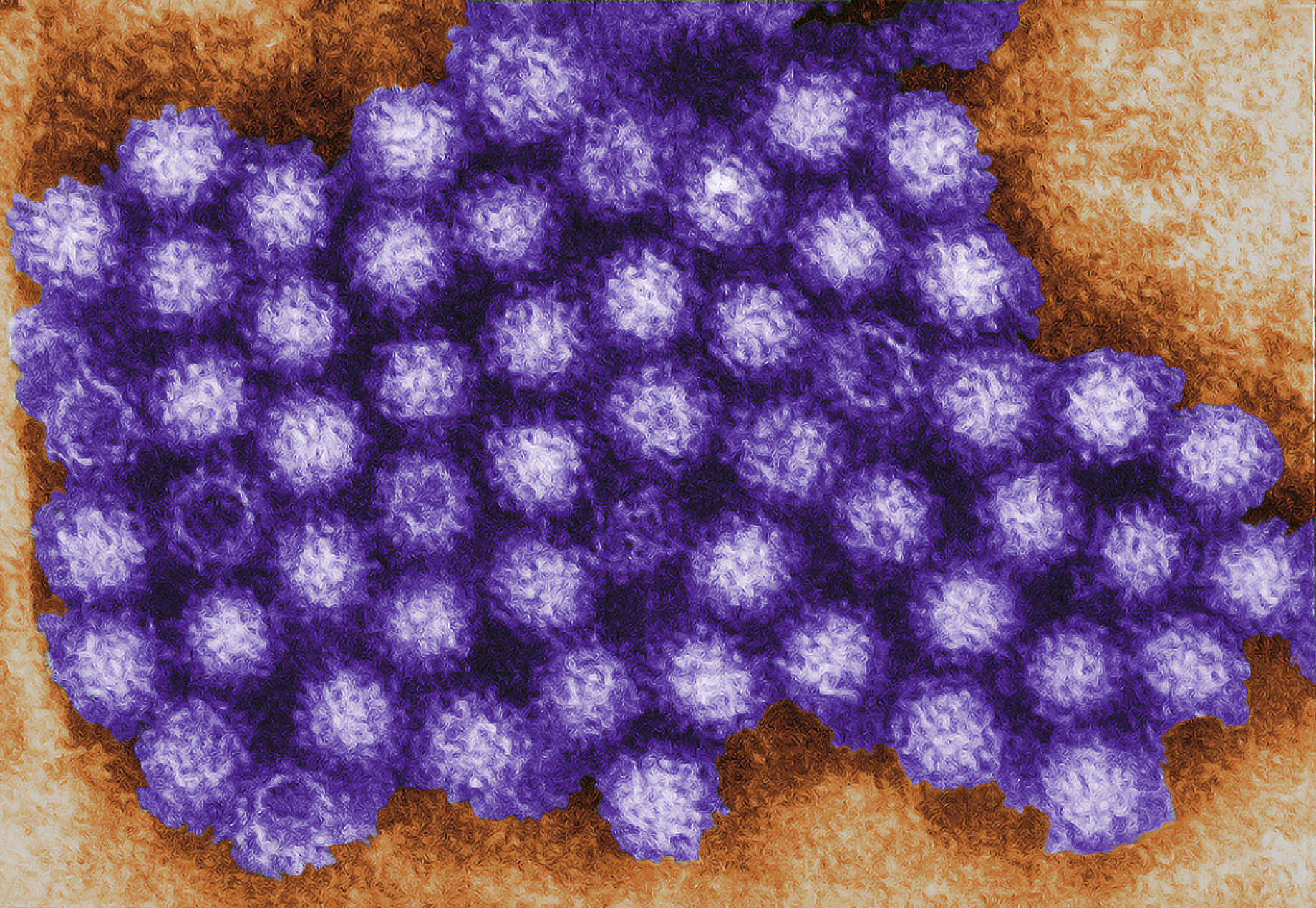Political irritation over animal epidemics

Critics of vaccination campaigns, including organic farmers and smallholders, are challenging a reform of regulations on animal epidemics. It is the only issue to come to a nationwide vote on November 25.
Parliament almost unanimously approved the legal amendment to boost epidemic prevention measures, but a committee led by a holistic therapist, Daniel Trappitsch, has collected enough signatures for a referendum.
The group has criticised the increased powers for the federal authorities and wants individual farmers to be able to opt out of vaccination campaigns.
At the launch of their campaign on a farm outside Zurich, several cattle breeders recalled the disastrous impact of a mandatory vaccination drive in 2008 against an outbreak of bluetongue.
They described inoculation measures as an attack against animal welfare.
The group – made up of citizens critical of the state, big business and the media – does not have the backing of the leading Farmers Association, but it has won the support of the rightwing Swiss People’s Party.
One of the party’s senior parliamentarian argued that international organisations would be able to impose their rules on Switzerland as a result and that residues of the vaccines would contaminate the food chain.
For his part, Walter Müller, a member of the centre-right Radical Party criticised the reform as unsatisfactory. “There is clearly no shared responsibility and farmers do not get a say in the decision-making process.”
Müller was the only parliamentarian who voted against the amendment last March, but he has not joined the referendum group.
Observers say the dissenting voices in most political parties could create confusion among voters trying to make up their minds.
Prevention
Supporters of the reform have dismissed as “absurd” allegations by the referendum group that the federal authorities would be given extra powers to impose vaccination campaigns.
A multi-party committee and the government said the focus of the reform was on prevention, ruling out a change in vaccination policy.
“Prevention is in the interest of animal welfare because it will indeed help avoid vaccinations and costly medical treatments,” says Jacques Bourgeois, Radical Party parliamentarian and director of the Farmers Association.
Hans Wyss, director of the Federal Veterinary Office reiterated: “It will not become easier to order vaccinations if the law passes.”
Economics Minister Johann Schneider-Ammann, whose portfolio includes veterinary issues, said the government supported the reform. He added Switzerland’s efforts must go beyond eradicating and containing animal epidemics.
He stressed the risks of animal diseases not only for humans but also for the Swiss economy and the country’s reputation at a time of global animal and goods transports.
Campaigning
Political scientist Claude Longchamp says that, barring unforeseen events in the run-up to voting day, turnout will be below average at around 30 per cent.
Supporters of the reform are likely to have the upper hand on November 25, according to the head of the GfS Bern research and polling institute.
Both sides have limited financial means at their disposal for campaigning. The multi-party support group said it would spend about SFr50,000 ($53,600) on posters and leaflets.
The referendum committee for its part also had a budget of around SFr50,000 at the beginning of November, according to campaign leader Trappitsch.
In contrast, campaign budgets for highly controversial issues amount to several million francs.
Under the legal amendment, the federal authorities are given the lead to improve prevention measures against animal epidemics.
The regulations notably define the funding system, including a temporary levy imposed on cattle breeders and the quota to be paid by the cantons.
The law also allows the federal authorities to agree contracts with pharmaceutical companies to provide vaccines in case of an epidemic and to negotiate international treaties on animal welfare.
The 26 cantons are responsible for the application of the prevention measures and of possible sanctions against perpetrators.
The reform, initiated by a parliamentarian in 2008, was approved almost unanimously by parliament last March.
The referendum on animal epidemics is the only issue to be decided in the nationwide vote – the fourth ballot this year.
About 5.1 million citizens are eligible to take part, including registered Swiss abroad.
As part of ongoing trials with electronic voting, around 164,000 people, mainly expatriates, can cast their vote online.
Initially three tax treaties were also scheduled by the federal authorities, but opponents failed to hand in sufficient signatures to mount a challenge at the ballot box.
Apart from the nationwide ballot, votes and elections also take place in a number of cantons and communes.

In compliance with the JTI standards
More: SWI swissinfo.ch certified by the Journalism Trust Initiative
















You can find an overview of ongoing debates with our journalists here . Please join us!
If you want to start a conversation about a topic raised in this article or want to report factual errors, email us at english@swissinfo.ch.